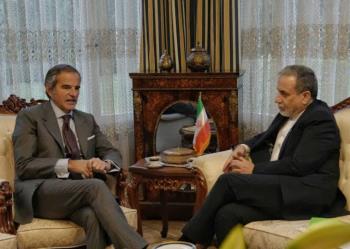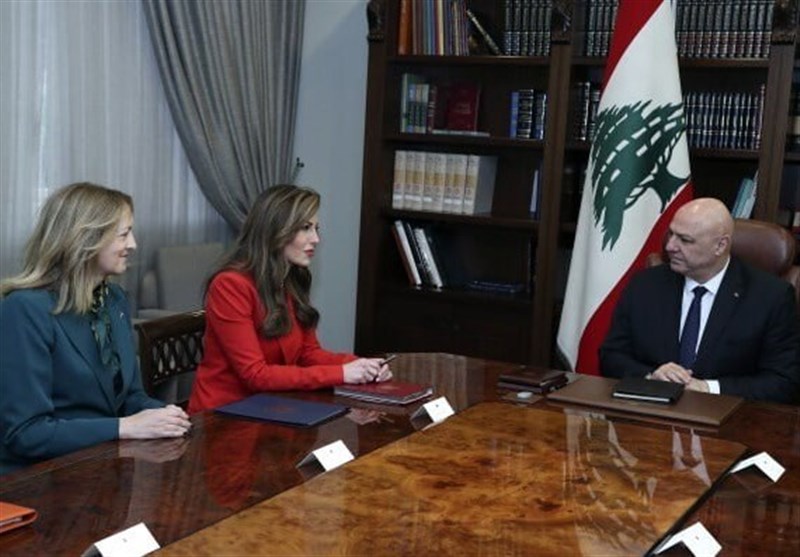Alwaght- While the Israeli regime with its recent airstrikes and violation of its obligation to fully withdraw from southern Lebanon has drawn anger of the Lebanese public and motivated them to press their new government to counter the Tel Aviv violations, the US diplomatic moves in support of the Israelis are reactivated as ever to defend Tel Aviv’s interests and secure in diplomacy what they could not secure through war.
In this connection, in the past few days, Trump's envoy to the region Morgan Ortagus visited Lebanon with a new agenda to make the Lebanese politicians choose between surrender and continuation of the Israeli attacks.
The published content of Ortagus' meetings with senior Lebanese officials indicates the advancement of the goal of pressuring Hezbollah to disarm and completely evacuate the border areas with the occupied territories, in accordance with the Israeli demands. These are the goals that Tel Aviv failed to achieve despite its fierce two-month war against Lebanon and was ultimately forced to accept defeat and sign a ceasefire with Hezbollah.
The Lebanese presidential office announced that a number of cases were discussed and reviewed by the two sides during the meeting between the President Joseph Aoun Aoun and Ortagus, the most important of which were "the situation in southern Lebanon, the Lebanese-Syrian border, and financial and economic reforms to combat corruption."
According to Lebanese sources, Aoun assured Ortagus that the Lebanese army would carry out its duties and coordinate with the ceasefire monitoring committee, in which the US is a party.
The US is pressuring the Lebanese to adhere to UN Resolution 1701, but on the other hand, it is not putting any pressure on the Israeli regime, which has violated this resolution by occupying areas of southern Lebanon in the past few months.
The Israeli army is now stationed in parts of southern Lebanon and is not willing to withdraw despite the ceasefire agreement, and has violated this agreement 392 times in four months, but no condemnation is heard from the US government. By shifting the blame and backing baseless Israeli claims, the White House officials accuse Hezbollah of not fulfilling its commitments to move back beyond the Litani River and of refusing to hand over the security of the southern regions to the Lebanese army forces. On the opposite side, Hezbollah considers the Israeli army's decline to evacuate parts of southern Lebanon to be the most important factor violating the ceasefire agreement and Resolution 1701, and Lebanese public opinion fully supports Hezbollah's positions.
New plot against Hezbollah's arms and Lebanon's defense power
Ortagus's trip to Lebanon is taking place at a sensitive time in which Lebanon is facing growing Western and Arab pressures for reforms. Meanwhile, although the implementation of political and economic reforms is the demand of public opinion and political movements, especially Hezbollah, and the resistance movement itself has always welcomed the reforms, Western and Arab countries opposed to Hezbollah have always pursued political motives behind the demand for reforms. In fact, the implementation of reforms and support for the sovereignty of the Lebanese government have become a codename for pressuring Hezbollah to disarm without taking effective action to strengthen the security and territorial integrity of Lebanon against Israeli aggression and to reclaim the occupied territories from the Israeli forces.
This issue was openly referred to by Ortagus during her meeting with Samir Geagea, the head of Lebanese Forces as a home enemy to Hezbollah.
In this regard, informed Lebanese political sources told Al-Jumhuriya newspaper that “threatening messages have reached the Lebanese officials that go beyond the framework of Resolution 1701, and the proposals being made to this country actually mean suicide for it. These developments have led to confusion among the Lebanese officials, and they feel that they have been placed in a position where they can no longer resist the pressures and find themselves facing two options: pressure to disarm the resistance, which means creating dangerous internal tensions, or a new major American and Israeli war against Lebanon."
The same sources added that Lebanese officials are in a state of fear and anxiety, and all the talk is about the need to take a unified Lebanese position against foreign pressure and to resist the dangerous conspiracy that the US has designed with the aim of dragging Lebanon into the trap of normalization with the Israeli regime.
Washington and Tel Aviv are pushing to secure Israel by military and political pressures on the Lebanese politicians to remove Hezbollah from the political and security structure of Lebanon and to disarm it.
The Americans claim that the weapons should be in the hands of the Lebanese army and that the four-decade-old structure and organization of Hezbollah should be dismantled forever, because they know that as long as the resistance movement is present on the ground, the Israeli occupation and interventionist projects in Lebanon cannot advance.
The push to disarm Hezbollah comes at a time when this movement, despite the pressures of the Israeli-Arab-Western front, engaged in the Lebanese political structure in addition to the security structure and has played an important role in creating stability and coordination between political factions. The presence of millions of Lebanese people in the funeral ceremony of Hezbollah chief Sayyed Hassan Nasrallah last month showed that the foreign effort to weaken Hezbollah and create a gap between this movement and the people is doomed to failure.
Wajdi al-Uraidi, an Arab author and political commentator, commented to the US-funded Arab-Language Al-Hurra news network about the efforts to sideline Hezbollah, saying that any efforts to disarm Hezbollah using force or discussing Hezbollah arms out of a national Lebanese consensus can lead to a "dangerous internal gap."
With this in mind, the US has now thrown the ball in the court of Lebanese officials to decide whether to disarm Hezbollah or expect Israeli aggression escalation. On the eve of the conference of countries that donate to Lebanon, the Americans, given Lebanon's economic and financial weakness and the country's need for tens of billions of dollars to rebuild areas destroyed in the recent war, are trying to force the president and prime minister to up the pressure on Hezbollah in exchange for international aid, but experts war this could only reignite the civil war in Lebanon.
Pushing for Israel-Lebanon normalization
Another goal the US is seeking in Lebanon is to add Beirut to the list of Arab sides normalizing relations with the Israeli regime. But Beirut and Hezbollah officials are opposed to the idea. Ali Fayyad, a member of the Loyalty to the Resistance parliamentary bloc stressed in a speech on Saturday that Lebanon will "neither surrender to the occupying enemy nor will it agree to normalize relations with this regime."
A Lebanese source commented to Al-Jumhuriya on the American moves to push Lebanon to the normalization, suggesting that "normalization with Israel is strongly rejected, and this is the unified position of all Lebanese; no less, no more. All Lebanese reject any normalization with Tel Aviv, and therefore this regime cannot impose such a thing on us. Our demand is completely clear and transparent, and that is to oblige Israel to implement the ceasefire and stop its aggression against Lebanon."
In general, if the US wants the occupied territories to enjoy security, it should press Israel to fully implement the ceasefire and withdraw from southern Lebanon instead of pressuring Hezbollah. Otherwise, any effurts to bring peace to the northern front is doomed to failure.



























